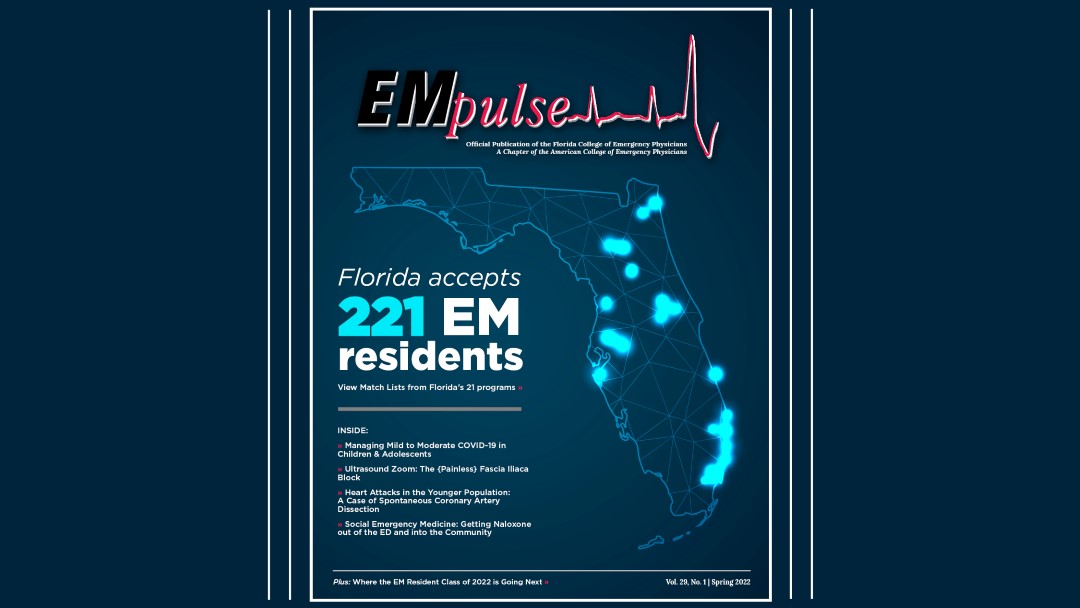Spring 2022: Government Affairs
This spring we have seen another busy and often contentious legislative session wrap up in March as the legislators in Tallahassee all turn their eyes towards campaigning for this fall’s election. Your team at FCEP has worked hard advocating for emergency physicians while also making sure to not be caught in the middle of any contentious battles. Most of the oxygen in the Capital this year was consumed by battles over redistricting, the budget and messaging bills. However, a few bills that have great importance on the daily lives and practice of emergency physicians were debated. Here are some of the big ones and how they affect us:
COVID-19-related Claims Against Healthcare Providers (SIGNED INTO LAW)
Protections that were passed last year were set to expire at the end of March, 2022, but SB 7014 extends the liability protections already in place until June 1, 2023.
PIP Repeal (FAILED)
After being vetoed last year by the Governor, PIP repeal was again brought up in both the House and Senate, but was defeated before receiving votes on the floor of either chamber.
Emergency Treatment of Minors Without Parental Consent (SIGNED INTO LAW)
This bill fixes a glitch in a bill from last year’s session that unintentionally made it against the law for physicians to provide emergency medical care outside of the hospital to minors without consent of the parents, such as sporting events, pools, or the beach when helping a minor in need of emergent care.
Telehealth Practice Standards (SIGNED INTO LAW)
SB 312 allows physicians to prescribe schedule III, IV, and V drugs via telehealth. This bill codifies changes that were made during the COVID state of emergency that have shown to be beneficial enough to keep on after the state of emergency ends. However, “audio-only” telehealth visits do not qualify as telehealth under this bill.
Step Therapy Protocols (SIGNED INTO LAW)
HB 459 defines what “step therapy” is and outlines the requirements for insurers must provide a method for applying for protocol exemptions to physicians and patients.
Pharmacies and Pharmacy Benefit Managers (PBMs) (SIGNED INTO LAW)
HB 357 gives the Office of Insurance Regulation the power to fine PBMs that are not appropriately registering with the agency under current law and moves the audit provisions of the Florida Pharmacy Act to the Florida Insurance Code. It also gives pharmacies the ability to appeal findings made by insurers or PBMs through the existing independent dispute resolution process we currently use as physicians with insurers.
As I mentioned before, we are gearing up for another election this fall and will again be advocating for emergency physicians throughout the state. We need your help getting our feet in the door. Please consider contributing to the FCEP PAC on page 31. Thank you all and take care. ■
This article is part of the following sections:










